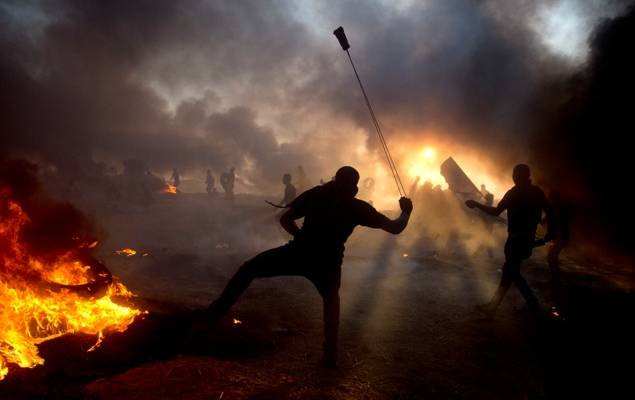The number of Palestinians protesting on the Gaza-Israel border continues to dwindle.
By United with Israel Staff
For the third week in a row, Hamas has canceled “March of Return” protests on the Israel-Gaza border. The violent protests have been held nearly every Friday since March 2018.
There are claims that the scrapped riots might be due to an understanding met between Israel and Hamas, according to Ynet.
Following the cancellation of last week’s protests, the Coordinator of Government Activities in the Territories (COGAT) Major General Kamil Abu-Rukun, posted on his Twitter account in Arabic that “Israel was adhering to the understandings reached with Egypt and others, to promote a long-term agreement for the benefit of the civilian population in the Strip and the safe return of Israeli MIAs and civilians held there,” according to Ynet.
However, Kan public broadcaster reported that organizers insist that the move “has nothing to do with the recent understanding reached with Israel.”
This week’s protests were meant to mark the anniversary of the UN resolution that established the State of Israel.
The previous cancellations were due to Israeli airstrikes on the Gaza Strip targeting areas from which terrorists shot some 450 rockets into Israel. Thirty-four Palestinians were killed in the confrontation, the majority of whom were members of terror groups.
Since the unofficial ceasefire, terrorists in Gaza have intermittently sent rockets into Israel, including two on Tuesday.
The violent Friday protests generally include improvised explosives, fire bombs, and other projectiles hurled at IDF soldiers.
A Lebanese newspaper claimed on Friday that they were considering “rolling back the marches to once a month or during national occasions,” according to The Jerusalem Post.
Participation in the protests has steadily declined over the year, with riots that initially drew thousands of Palestinians gathering at Israel’s southern border declining dramatically.




